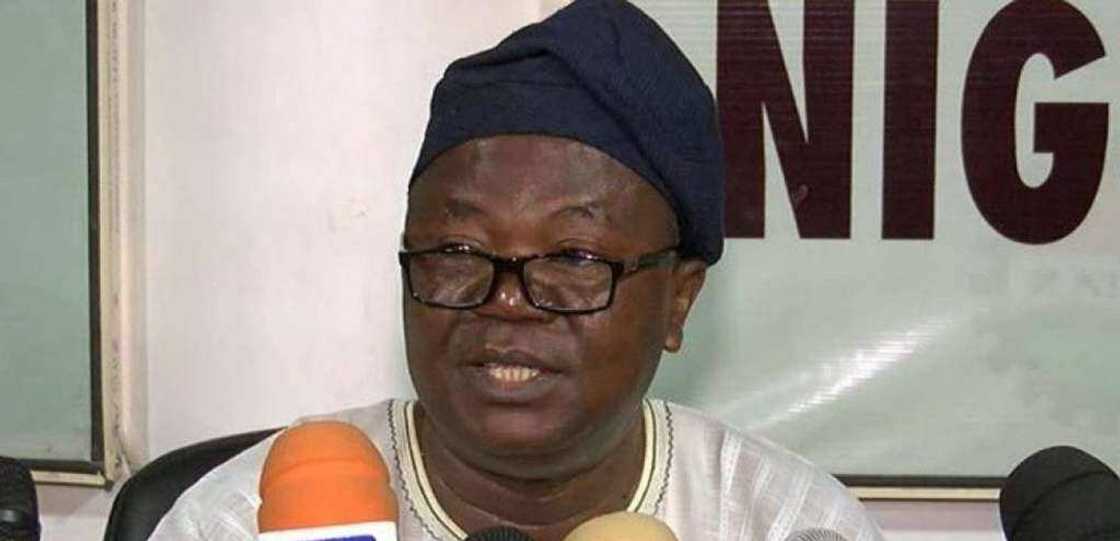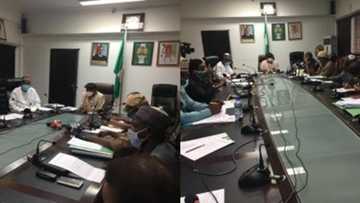Strike: 4 reasons ASUU suspended 10-month strike
The Academic Staff Union of the Universities (ASUU), in what has finally ushered in a sigh of relief, finally called off its strike action on Wednesday, December 23.
PAY ATTENTION: Click “See First” under the “Following” tab to see Legit.ng News on your Facebook News Feed!
This is coming after ten months of leaving students frustrated and tired of staying at home, with Professor Bodun Ogunyemi, ASUU president, announcing the long-awaited good news following a meeting with the federal government.
Legit.ng recalls that ASUU had in a tweet on Tuesday, December 22, hinted at the possibility of resumption. The lecturers' body said it would call off its strike when the federal government "begin payment of withheld salaries" of lecturers.
Also, the federal government on Monday, December 21, said Nigerian university students would be returning to classrooms by January 2021.

Source: Twitter
And after an 8-hour meeting on Wednesday, ASUU said it has "conditionally” suspended its strike.
This, affirmatively, ended a protracted industrial action that started since March 2020, with the suspension of the strike taking effect from Thursday, December 24, according to ASUU president Professor Biodun Ogunyemi.
Legit.ng highlights four major reasons likely to be the drive behind the suspension of the strike action.
1. Payment of N65 billion
Prior to the suspension of the strike, ASUU had been pressing numerous demands before the federal government's representatives among which was the recognition of the 2009 agreement and payment of the lecturers' arrears.
But during a 7-hour meeting on Friday, November 20, the federal government agreed to pay N65 billion for the settlement of the lecturers' allowances.
2. Funding of the university system
As part of an agreement between both parties, the payment of the N65 billion will also cover the revitalisation of the university system.
The federal government also promised to make more provision for the universities and pump more money into the education sector.
3. Withdrawal of the IPPIS
Another bone of contention was the adoption of University Transparency and Accountability Solution (UTAS) in the place of the Integrated Payroll and Personnel Information System (IPPIS).
The federal government had insisted it would only pay lecturers' allowances with IPPIS but ASUU said it would only agree to UTAS, its home-grown system.
This prompted the Ministry to Labour and Employment to submit that employee (ASUU) cannot dictate for its employers (FG).
But while bowing to pressure, the federal government said it would consider UTAS in the future for the payment of the lecturers.
It was also agreed that ASUU would be exempted from the IPPIS which was generating hiccups towards the suspension of the strike action.
Meanwhile, prior to that agreement, ASUU and the account-general of the federation Ahmed Idris were at war over the alleged payment of salaries into the accounts of ghost or dead lecturers.
4. Payment of two-month arrears
Before the Wednesday, December 23 meeting, the federal government was said to have commenced the payment of the two-month arrears for the members of the ASUU.
This was a motivation for the suspension of the industrial strike action.
PAY ATTENTION: Get the Latest Nigerian News Anywhere 24/7. Spend less on the Internet!
Parents advice government over ASUU strike | - on Legit TV
Source: Legit.ng





